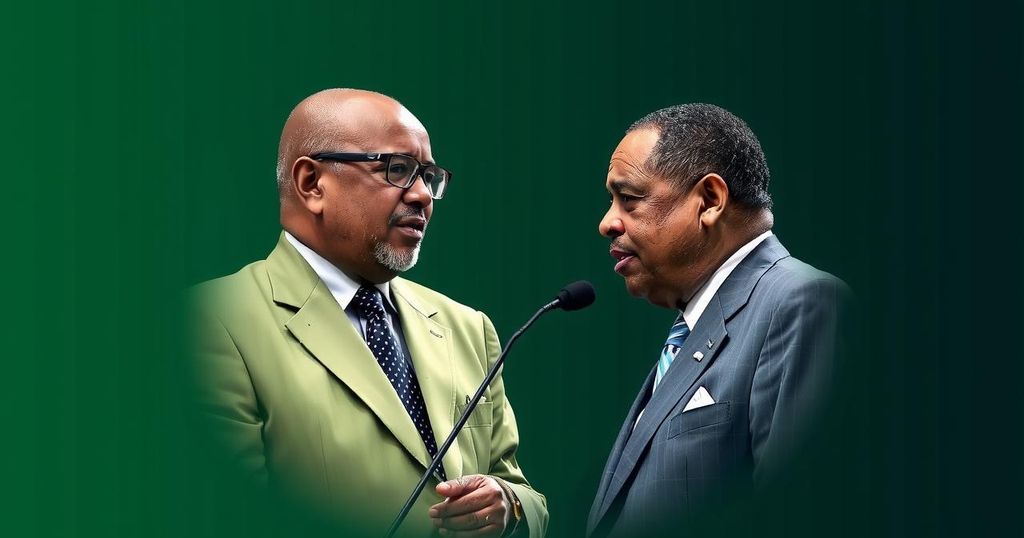Botswana’s Ruling Party Faces Historic Electoral Defeat After Decades in Power
Botswana’s ruling Botswana Democratic Party (BDP), which has held power for nearly sixty years, has lost its parliamentary majority in a shocking election defeat. Early results show opposition parties winning 31 of 61 seats, with the Umbrella for Democratic Change leading the way.
Botswana’s political landscape has dramatically shifted following the preliminary results of the latest elections, which indicate that the ruling Botswana Democratic Party (BDP) has lost its parliamentary majority. After nearly sixty years in power, President Mokgweetsi Masisi’s party has faced an unexpected defeat, with election tallies revealing that opposition parties secured 31 of the 61 available seats in parliament. Notably, the BDP won only one seat as of early Friday morning. The Umbrella for Democratic Change, led by Duma Boko, a Harvard-trained human rights attorney, emerged as a significant victor by claiming 19 seats. Additionally, the Botswana Congress Party, under the leadership of economist Dumelang Saleshando, secured seven seats, and the Botswana Patriotic Front, which is associated with former President Ian Khama, gained five seats. According to Botswana’s constitution, the party that possesses a majority in parliament is empowered to select the president and establish a government. Despite expectations that President Masisi, a 63-year-old former educator and UNICEF worker, would retain his parliamentary majority and embark on a second term, this outcome marks a substantial shift in Botswana’s governance. Historically recognized as one of Africa’s prominent success stories, Botswana is distinguished by its wealth and stability as a democracy. However, the adverse impact of a global decline in demand for mined diamonds, which constitute over 80 percent of the nation’s export revenues, has severely affected its economy. The International Monetary Fund has projected a decline in economic growth to 1 percent in 2024, a significant drop from 2.3 percent the previous year and 5.5 percent in 2022, while unemployment rates have escalated to 27 percent.
Botswana, endowed with rich diamond deposits, has been governed by the Botswana Democratic Party since its independence in 1966. The country’s stability and development have garnered it the reputation as a success story in Africa. Nevertheless, the dependency on diamond mining has exposed the nation to economic vulnerabilities, particularly in light of decreasing global demand for diamonds. This election marks a pivotal moment in Botswana’s political history as it transitions from decades of BDP rule to potential new leadership from opposition parties, reflecting a shift in public sentiment as economic challenges mount.
The recent electoral results signify a historic turning point for Botswana, as the ruling BDP has relinquished its dominance after nearly sixty years. The emergence of opposition parties, particularly the Umbrella for Democratic Change, highlights the electorate’s growing discontent, primarily driven by economic struggles stemming from declining diamond prices. As Botswana prepares for a new political era, the implications of this shift on governance and economic recovery remain to be seen.
Original Source: www.aljazeera.com




Post Comment